Ministrul Justiţiei şi vicepreşedintă a PNL Alina Gorghiu a declarat că îşi doreşte comasarea alegerilor europarlamentare cu cele locale, însă decizia politică aparţine partidelor din coaliţia de guvernare. Alegerile pentru Parlamentul European vor avea loc pe 9 iunie. Chestionată dacă au fost discuţii privind liste comune PNL şi PSD la primăriile de sector, Marcel Ciolacu să candideze la Primăria Capitalei, iar Nicolae Ciucă la prezidenţiale, Gorghiu a replicat că "înţelegerea presupune ceva pe care s-a bătut palma". "Nu, nu există asemenea înţelegeri", a mai precizat ea, relatează News.ro.
"Biroul Politic Naţional l-a mandat pe preşedintele Nicolae Ciucă să discute în coaliţia de guvernare scenariul comasării alegerilor. Toate scenariile de comasare, care sunt constituţionale, sunt posibile. Altfel, riscăm blocaje în societate cu atâtea runde de alegeri, în economie, în învăţământ, în justiţie. Eu îmi doresc comasarea alegerilor pentru Parlamentul European cu cele locale. Coaliţia trebuie să decidă o formulă rezonabilă şi clară, iar decizia să se ia cel mai târziu la începutul lunii martie. Sunt şi alte state europene care discută comasarea alegerilor sau unde s-a luat, deja, această decizie, precum Belgia, Irlanda, Ungaria", a explicat Alina Gorghiu, într-o conferinţă de presă susţinută, vineri la sediul PNL Vrancea.
Ea a mai spus că nu sunt înţelegeri cu PSD referitoare la desemnarea unor candidaţi comuni şi condiţionările de nume şi funcţii.
"Nu s-a discutat aşa ceva în interiorul PNL, despre niciun fel de discuţie nu a fost vorba legată de candidatul la prezidenţiale, despre cine va candida la alegerile parlamentare, despre nimic altceva. Mandatul este dat punctual referitor la comasarea alegerilor. Nimic altceva. Orice altă discuţie politică ce presupune o strategie comună, dacă se va face în viitorul apropiat, o să ştiţi sigur şi dumneavoastră, media din România. Dar la momentul acesta, nimic nu s-a discutat", a subliniat Gorghiu.
Întrebată dacă au fost discuţii privind liste comune PNL şi PSD la primăriile de sector, Marcel Ciolacu să candideze la Primăria Capitalei, iar Nicolae Ciucă la prezidenţiale, Gorghiu a răspuns: "Înţelegerea presupune ceva pe care s-a bătut palma. Nu, nu există asemenea înţelegeri".
"Vă spun un lucru pe care mi l-aş dori. Acolo unde este primar USR, mi-aş dori să văd o convergenţă de forţe între PNL şi PSD, astfel încât să susţinem un candidat care să bată primarul USR. De ce? E aşa de rău să îţi doreşti să câştige candidatul tău şi nu al altui partid? În opinia mea această coaliţie ar trebui să funcţioneze şi în următorii patru ani, pentru că a oferit stabilitate României, pentru că toţi indicatorii sunt acolo unde trebuie, proiecte de investiţii au fost făcute, economic a mers bine, au făcut reforme. Sigur că între noi şi PSD vor fi întotdeauna diferenţe structurale, dar cred eu că argumentul acesta al stabilităţii, mai ales în contextul complicat în care suntem, cu războiul la graniţă, cu situaţia socială existentă peste tot în Europa, este un semn de înţelepciune din partea noastră, a tuturor, nu un semn de iresponsabilitate", a mai afirmat Gorghiu.


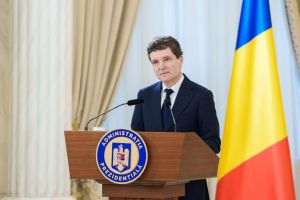
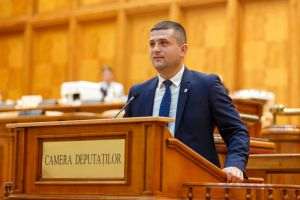
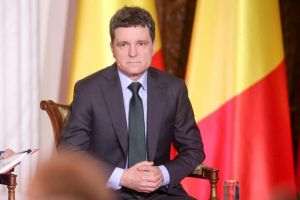
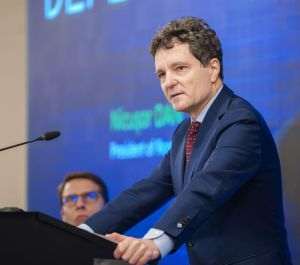
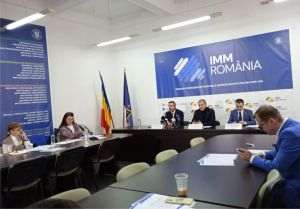







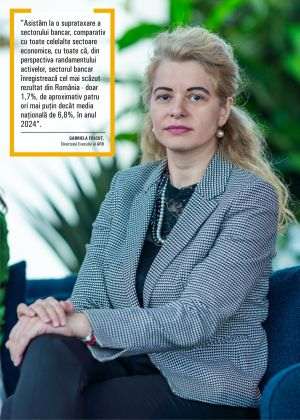

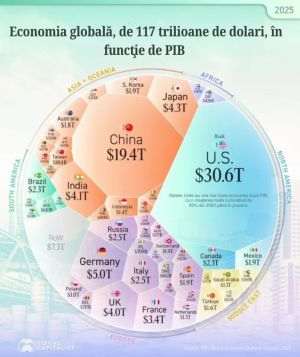


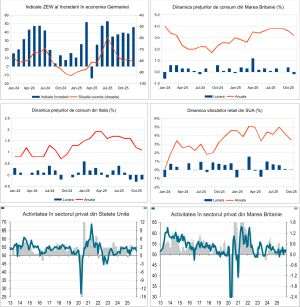









































1. fără titlu
(mesaj trimis de anonim în data de 02.02.2024, 17:44)
1)Comasarea alegerilor locale cu europarlamentare se poate face .Pentru asta este nevoie doar de niste modificari in legislatie ce nu afecteaza teza de constitutionaliate .Trebuie modificat doar Codul Administrativ și trebuie să fie modificata și Legea privind alegerea Autorităților Locale(Primarilor și consiliilor locale). Din punct de vedere Constituțional se poate. Este timp destul. Nu schimbi sistemul, doar propui să fie depus jurământul mai târziu decât este legea actuală. Nu faci dintr-un singur tur două tururi, nu schimbi regulile jocului, schimbi doar data. Deci, din punct de vedere constituțional se poate .Chestia cu comisia de la Venetia este doar o recomandare si nu are efecte imediate .
1.1. fără titlu (răspuns la opinia nr. 1)
(mesaj trimis de anonim în data de 02.02.2024, 19:17)
Parca ai fi trol. Dar sigur nu esti, nu-i asa? Tu esti un simplu cetatean si pur si simplu ai facut o analiza si ai constatat ca totul e constitutional. Te cred.
1.2. fără titlu (răspuns la opinia nr. 1.1)
(mesaj trimis de anonim în data de 02.02.2024, 19:37)
candidat comun si comasarea alegerilor determina cistigatorii .ce nu intelegi ?
1.3. fără titlu (răspuns la opinia nr. 1.1)
(mesaj trimis de anonim în data de 02.02.2024, 20:27)
Este membru pnl
2. fără titlu
(mesaj trimis de anonim în data de 02.02.2024, 19:22)
Lasa-le necomasate. Nu e nicio problema daca sunt 4 randuri de alegeri. Mergem la vot, nu la munca in mina. Mai degraba as discuta despre stupiditatea alegerilor in doua tururi la presedintie. De ce sa alegem presedintele in doua tururi???? Unul ajunge!!! Alea sunt adeveratele alegeri, unde cetateanu voteaza chiar pe cine doreste. In turul doi mereu se alege raul mai mic, chiar daca nu e cel pe care il vrei cu adevarat.
Un singur tur la toate alegerile este suficient, indiferent de cata participare e, indiferent de cine iese, asta e democratia adeverata.
3. Comasarea alegerilor este o frauda
(mesaj trimis de anonim în data de 02.02.2024, 19:34)
Comasarea alegerilor este o frauda care nu corespunde spiritului constitutiei care presupune un vot neinfluentat de niciun fel de cei care candideaza. Pe de alta parte, comasarea de locale cu europarlamentare creaza dificultati alegatorului, acesta avand de manevrat nu mai putin decat 5 buletine de vot cu mai multe pagini, lucru care nu e tocmai simplu, ca nu stai la o masa cand pui stampila.
4. fără titlu
(mesaj trimis de anonim în data de 02.02.2024, 20:31)
Ma duc la vot și o sa votez MRS în ciuda lui iohanis pnl și psd
5. fără titlu
(mesaj trimis de anonim în data de 02.02.2024, 23:32)
Cand o vad pe femeia asta imi aduc aminte de toate necazurile … Alegeri la timp fara comasare si prezenta mare la vot sa scapam de asemenea politicieni slabi si slugarnici.., Votam cu opozitia din parlament si din afara lui, oameni noi patrioti care tin cu poporul…
6. de ce?
(mesaj trimis de anonim în data de 03.02.2024, 00:57)
Inteleg ca nu vreti sa renuntati la portbagajele pline cu bani, la contractele date firmelor de famiglie, la pensii speciale, la salarii mari si nemeritate, la oameni incapabili in fruntea tarii - la tot ce este politica in Romania de 35 de ani. Si mai mult, va este frica ca venim dupa averile castigate prin furt.
Alinus, nu vrem alegeri comasate, sa-ti intre bine in cap.
6.1. fără titlu (răspuns la opinia nr. 6)
(mesaj trimis de anonim în data de 03.02.2024, 15:39)
uita-te l a ce face aur /simion, nu la ce spune: cand s-a votat pt eliminarea pensiilor speciale AUR S-A ABTINUT. DECI ACEIASI HOTI CA TOTI.
7. fără titlu
(mesaj trimis de anonim în data de 03.02.2024, 05:52)
Și noi tot cu AUR votam. Adio PNL !
7.1. fără titlu (răspuns la opinia nr. 7)
(mesaj trimis de anonim în data de 03.02.2024, 11:41)
AUR =Cal Troian PSD!
PS: vezi ce "migranti" are parte...
s c c r e t
8. fără titlu
(mesaj trimis de anonim în data de 03.02.2024, 07:53)
Bine ar fi fost sa nu fi facut politica.
9. fără titlu
(mesaj trimis de anonim în data de 03.02.2024, 11:48)
Anul asta Romanii ar trebuii in loc sa mearga la "votare" sa mearga la "saltare"... dar ce sa faci... voi va bazati ca oamenii sunt pana in gat in rate si nu se vor mai opune prea tare.... asta e democratia .... de supraindaotrare si mulgere periodica populatie de truda prin rate...
s c c r e t
10. we need structural peace also please listen to p
(mesaj trimis de anonim în data de 03.02.2024, 13:20)
Advancing Structural Peace: The Case for a Federalized European Union with Budgetary Integration
Introduction:
The discourse on the concepts of "structural peace" and a "United States of Europe equipped with a federal budget and treasury" resonates deeply within the ongoing narrative of European integration and the trajectory of the European Union (EU). This chapter delves into the intricate connection between these concepts, exploring their implications, goals, and the potential benefits that a more integrated EU could bring.
Structural Peace:
The term "structural peace" encapsulates the notion that robust and interconnected institutions, particularly in the context of a federal union, can be instrumental in fostering enduring peace and stability. A unified structure, underpinned by effective mechanisms for cooperation and economic interdependence, holds the potential to mitigate the risks of conflicts between member states.
European Union with Federal Budget and Treasury:
Envisioning a European Union equipped with a federal budget and treasury implies a significant centralization of financial resources and fiscal policy. This centralization is poised to foster a more balanced economic system, stimulating development and convergence across regions and member states. Simultaneously, it has the potential to fortify economic and political ties, thereby promoting stability within the EU.
Reducing the Risk of Intergovernmental Confrontation:
One of the primary advantages of establishing a common financial and fiscal system lies in the reduction of risks associated with intergovernmental confrontation. Member states, jointly sharing financial resources and responsibilities, develop a common interest in maintaining stability and avoiding conflicts, fostering a collaborative approach over divisive tendencies.
Promoting Common Interests:
The introduction of a federal budget and treasury could facilitate the efficient management of financial resources in support of shared EU goals. Investments in research, innovation, infrastructure, and regional development could be strategically directed, reinforcing economic and social cohesion within the EU.
Building a Unified Community:
The adoption of a federal structure has the potential to strengthen the sense of community and solidarity among member states. These close ties contribute to maintaining structural peace through enhanced cooperation and dialogue, as opposed to intergovernmental approaches that may exacerbate tensions.
In Conclusion: A Path Towards Consolidated Structural Peace:
In conclusion, the vision of a European Union with a federal budget and treasury emerges as a formidable force in consolidating structural peace. Through deeper integration, increased cohesion, and a commitment to shared values, this vision embodies a paradigm shift towards a more cooperative, stable, and resilient EU. The evolution towards such an integrated financial system signifies a profound dedication to the common objectives and ideals that underpin the very essence of the European Union.
11. fără titlu
(mesaj trimis de anonim în data de 03.02.2024, 13:31)
The Interplay Between Globalization, Conflict, and the European Union's Integrated Vision
Continuing our exploration of globalization's intricate relationship with conflict, we n ow connect these discussions with the vision of a more integrated European Union (EU). This connection is critical as we navigate the complexities of economic regional integration and analyze the multilevel dynamics influencing conflicts on both international and intra-national stages.
1. What Happens
The dichotomy created by globalization, particularly through economic regional integration, finds resonance in the EU's journey towards integration. The European model of convergence, with its nuanced approach, serves as an instructive case study. By comparing the American and European models, we can draw parallels to the discursive tensions and conflicts arising fr om the EU's pursuit of economic convergence.
2. Why it is Happening
The dominance of neo-liberal economic strategies on the global stage parallels the challenges faced by state actors within the EU. As we delve into the causes of conflict, we connect the struggles of social democrats within the EU with the broader global narrative. The examination of legitimacy, structural, and functional conflicts becomes a lens through which we analyze the internal dynamics of the EU.
Connecting with the Previous Chapter
In examining the causes of conflict, the legitimacy conflict within the EU mirrors the paradox of identity and reflexivity discussed in the broader context of globalization. The EU's approach to identity and legitimacy serves as a microcosm of the global challenges faced in navigating conflicting values, interests, and worldviews.
3. How Can This be Judged:
The evaluation of globalization as an "engine" of social conflict extends to the EU's role in creating institutional, authority, and distribution crises. As we discuss the inadequacies of current global governance, the EU's own struggles with accommodating the contradictions between global capital and civilization come into focus. The call for a reevaluation of global governance resonates strongly in the context of the EU's evolving role on the international stage.
The EU's journey towards integration serves as a microcosm for the broader challenges discussed in evaluating globalization's impact on conflict. Bridging the gap between private and public sector logics, democratizing global governance, and redefining foreign policy structures become imperative not just for the EU but for the global community as a whole.
Conclusion:
In conclusion, the complexities of globalization, conflict, and the EU's integrated vision intertwine in a narrative that calls for a paradigm shift. As we navigate the interconnected world, the EU's experiences become a guiding light, emphasizing the need for normative politics, solidarity, and the virtues of "globalism" to bring unity in an evolving global landscape. The next chapter further explores the potential trajectories for a more integrated and harmonious future.
12. "Universal Declaration of Peace" is an urgency
(mesaj trimis de anonim în data de 03.02.2024, 13:32)
While there is no specific "Universal Declaration of Peace" comparable to the Universal Declaration of Human Rights, the idea of a global commitment to peace and security is certainly a noble and aspirational concept. The Universal Declaration of Human Rights, adopted by the United Nations General Assembly in 1948, serves as a foundational document outlining the fundamental rights and freedoms to which all people are entitled.
A hypothetical "Universal Declaration of Peace" could similarly aim to establish principles and commitments for nations worldwide to promote and maintain peace. Such a declaration might include:
Renunciation of War: A commitment by nations to renounce the use of war as a means of settling disputes and conflicts.
Cooperation and Dialogue: Emphasis on diplomacy, international cooperation, and dialogue as primary tools for conflict resolution.
Humanitarian Values: Recognition of the importance of humanitarian values in international relations, including respect for human dignity, equality, and justice.
Sustainable Development: Integration of principles for sustainable development, emphasizing economic, social, and environmental factors that contribute to long-term peace and stability.
Demilitarization: Encouragement for nations to reduce military expenditures and invest in social and economic development.
Conflict Prevention: Commitment to proactively address the root causes of conflicts and work toward preventing them before they escalate.
Human Rights and Social Justice: Ackn owledgment of the interconnection between peace and human rights, with an emphasis on social justice as a foundation for lasting peace.
Education for Peace: Promotion of education programs that foster a culture of peace, tolerance, and understanding.
Global Governance: Support for effective global governance structures that facilitate international cooperation and the peaceful resolution of disputes.
Non-State Actors: Recognition of the role of non-state actors, such as civil society organizations, in promoting and sustaining peace.
Implementing such a declaration would require widespread international cooperation and commitment. It would involve ongoing efforts to foster a culture of peace at both the national and global levels. While creating a formal declaration may be a complex process, the fundamental idea of working toward a more peaceful and secure world is one that resonates with many individuals and organizations committed to global well-being.
Efforts to advance the cause of peace often involve initiatives such as diplomatic negotiations, conflict prevention strategies, and collaborative international projects that address the underlying factors contributing to instability. The pursuit of peace is an ongoing and collective endeavor that requires continuous dedication fr om the global community.
13. fără titlu
(mesaj trimis de anonim în data de 03.02.2024, 13:42)
Securing Human Well-being: A Vision for United States of Europe with Integrated Financial Structures and Emphasis on Structural Peace
Introduction:
In envisioning the future of the European continent, the exploration of an integrated and secure United States of Europe becomes central. This comprehensive analysis will delve into the profound implications of an European Union equipped with a unified banking system, treasury, and a resolute commitment to structural peace. As we embark on this journey, the emphasis on human security will be a guiding principle, weaving through the interconnected threads of economic integration, structural peace, and the timeless ideals articulated in the Universal Declaration of Peace.
Chapter 1: A United States of Europe - A Vision for Human Security:
The foundational chapter centers on the concept of human security within the framework of a United States of Europe. By integrating financial structures through a Union Banking and Treasury, the EU can fortify its commitment to the well-being of its citizens. This chapter explores how such integration can create a safeguarding mechanism against economic vulnerabilities, fostering resilience and stability for individuals across the continent.
Chapter 2: Structural Peace in a Unified Europe:
Structural peace emerges as a linchpin in our exploration. The chapter delineates how a United States of Europe, with its integrated financial apparatus, contributes to the establishment and maintenance of structural peace. The interconnected nature of institutions within a federal union can substantially reduce the risks of conflicts, fostering an environment whe rethe well-being of citizens takes precedence over inter-state tensions.
Chapter 3: United States of Europe and the Common Declaration of Peace:
Delving into the universal principles that underpin peace, this chapter connects the vision of a United States of Europe with the ideals articulated in the Universal Declaration of Peace. By aligning its goals with this declaration, the EU can signify its commitment to peace, cooperation, and the well-being of humanity as a whole.
Chapter 4: Integrating Human Security into European Governance:
The concluding chapter synthesizes the discussed elements, emphasizing the pivotal role of human security in the envisioned United States of Europe. By integrating financial structures, fostering structural peace, and aligning with universal declarations of peace, the EU can establish itself as a beacon of stability, prosperity, and collective well-being.
Conclusion: A Harmonious Future Anchored in Human Security:
In conclusion, this comprehensive exploration ch arts a course for a future whe rehuman security stands at the forefront of European priorities. The vision of a United States of Europe, fortified by integrated financial structures, structural peace, and a commitment to universal ideals, paints a portrait of a continent that prioritizes the well-being and security of its diverse citizens. As we envision this harmonious future, the integration of these elements becomes imperative for shaping a United States of Europe that truly serves as a sanctuary for human prosperity and peace.